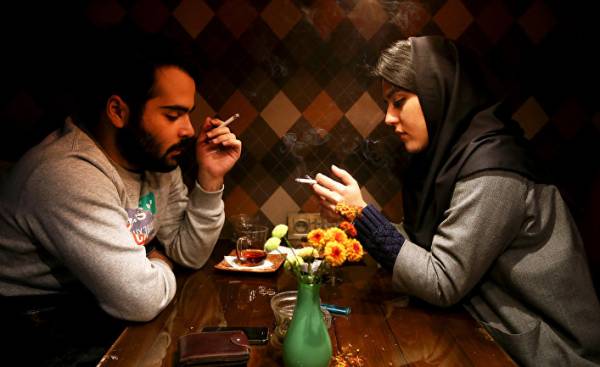
“The West does not understand Iran,” says Professor Nasser Takouhi (Nasser Fakouhi), one of the most prominent intellectuals of Iran, in connection with the presidential election.
Today, millions of Iranians will go to the polls to elect a new President who will lead the Islamic Republic of Iran, the regional superpower. Participates in the elections and the current President Hassan Rouhani and several of his rivals, configured more conservatively.
Misunderstanding
Professor Nasser Takouhi, the famous anthropologist, stresses that Iran is not what most people think in the West. Takouhi would like to correct what, in his opinion, is a simple misunderstanding.
“Because of the long isolation of the country people in the West have formed a wrong idea about Iran. Iran is the most westernized country in the middle East. And Iran is not a theocracy in the European Christian sense, but rather, democracy that emerge under the control of the Shiite religious institutions and personalities,” says Takouhi in an interview with Dagsavisen.
Takouhi, who is 61 years old, teaches at Tehran University, which is now 50 thousand students. The University was founded in 1934, almost 50 years before the Islamic revolution. In the turbulent history of the country, the University has played a Central role. Just at the entrance to the University security forces of the Shah Mohammad Reza Pahlavi in 1979 was shot protesting students that led to the revolution and regime change.
After the revolution the University is one of the most important weekly Friday prayers in Tehran. In 2009, after the presidential elections, when President Mahmoud Ahmadinejad was accused of falsifying their results, the security forces attacked a student dormitory to suppress began spreading protests.
According to Professor Takouhi, that the West does not understand the political reality in Iran, due to historical experience of Europe, associated with another Muslim country, namely the Sunni Ottoman Empire.
“I think the biggest confusion is the result of what in the West is mixed Shia, that is the version of Islam that exists in Iran, the ideological and totalitarian Sunni Arab Islam, the legacy of the Ottoman Empire,” he said.
Human rights organizations such as Human Rights Watch,criticized Iran even more tightly. Perhaps only in the last year was executed up to 400 people, the regime is accused of repressing political opposition and freedom of opinion.
“The proximity to the West”
The Supreme ruler of Iran is Ayatollah Ali Khamenei, whom the people did not elect. 79-year-old elder has a final say in all crucial matters. But “underneath” there is also a popularly elected President, the country has a Majlis, i.e. the Parliament.
But although a free press and no freedom of speech is not inhibited, as in Iraq under Saddam Hussein or Bashar al-Assad. There is some freedom of maneuver, the cultural life in Iran is booming.
“That Europe imposed on Iran’s isolation, when the Europeans after the revolution, deprived the dictatorship that could control. As for the Iranian people, we always felt their proximity to the West,” says the Iranian philosopher.
Before the revolution the relationship between Iran and the West was difficult. In 1953 the democratically elected Prime Minister Mohammed Mosaddeq was overthrown in a coup largely orchestrated the US and the UK. After the revolution, millions of Iranians have been ordered to participate in protest marches against the West, especially the US, which are considered to be the main fiend. Iranian men still do not wear a tie, because the Supreme leader believes that this piece of clothing promotes Western culture.
The Professor himself Takouhi spent many years in Paris, where he defended his doctoral thesis. The book is devoted to the study of political violence, is one of the most important of his works. In addition, he translated into Farsi books many French philosophers, and thus brought them into Iranian culture, it concerns the books of Pierre Bourdieu (Pierre Bourdieu), Roland Barthes (Roland Barthes) and Claude Levi-Strauss (Claude Levi-Strauss).
Takouhi — a fearless intellectual. A month ago he appeared in the Tehran Times newspaper calling for greater openness, at the same time he warned that people who do not accept the modern world, it will disappear. He, in particular, wrote about the Internet and social media.
“These media have completely changed the lifestyle of our youth. Now we are experiencing a technological revolution that in a few years will change everything. People who are unwilling or unable to accept it, simply disappear,” he told the Iranian newspaper.







